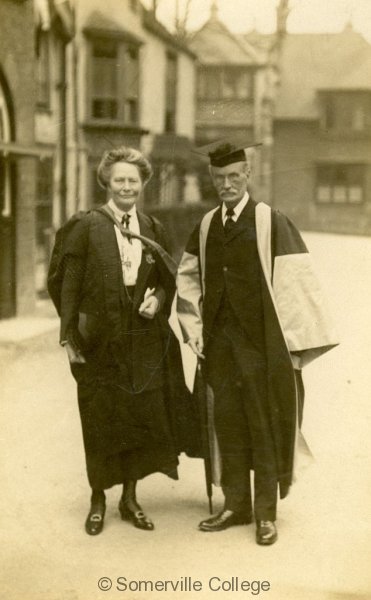
Dorothy Sayers’ Gaudy Night opens with its heroine, the crime-novelist Harriet Vane, thinking back on her time as an undergraduate at Shrewsbury College, Oxford. Shrewsbury, a fictional college, is located on St. Cross Road. Vane thinks of the college fronted ‘by the trees of Jowett walk, and beyond them, a jumble of ancient gables and the tower of New College, with its jackdaws wheeling against a windy sky.’ Shrewsbury, then, is just across the road from my own college, also in the shadows of New; a propitious beginning to a book.
I read Gaudy Night while I should have been revising for my collections. Mischievously, each chapter is headed by an epigraph from a Renaissance work: prose by Burton, stanzas from Sidney or Spenser. I told myself it was revision, but it was a heady escaping plunge into the allure of golden age detection.
Harriet Vane, once accused of the murder of her lover, since liberated by the aid of Sayers’ gentleman-detective Lord Peter Wimsey, returns to Oxford to celebrate Shrewsbury’s Gaudy Night. When a poison-pen and poltergeist begins to wreak havoc on the women’s college, Harriet is summoned to lend a detecting hand. But, while Harriet is a mystery writer, she is no detective; we must wait for the appearance of the dashing Wimsey to set all to right. (Sayers’ female power only takes her so far. We are not sorry because Lord Peter is always a welcome guest.)
Sayers writes with charm, though she betrays her class. Snobbery is a virtue in Lord Peter, who carries it off with self-deprecating aplomb; in Sayers it is regrettable.
Aside from it's bon-vivantish 30's atmosphere, the novel’s strength is its timely addressing of the Woman Question. Published at 1935 by a recent Oxford graduate of Somerville (Sayers was of the first women to be awarded a degree by the University), the novel is set at a time where women have not been fully integrated into the university and their position is a tentative one. The female dons of Shrewsbury discuss their own position: can they as intellectual women expect to enjoy a domestic life?
Miss Hillyard, the high-strung history tutor believes ‘everyone in this place has an inferiority complex about married women and children. For all your talk about careers and independence, you all believe in your hearts that we ought to abase ourselves before any woman who has fulfilled her animal function.’
And a student, when asked how she will keep her fiancé from knowing of her academic success in her final examinations, says ‘…it will be awkward if I do that. Poor lamb! I shall have to make him believe I only did it by looking fragile and pathetic at the viva.’
Must they subjugate their public lives as intellectuals to the personal sphere of mother and wife? Are they unfeminine? Are they psychologically repressed virgins? Harriet is no longer a virgin, which makes her the target of some unpleasant attention.)
Though no longer as urgent as they were in 1935, these questions are still appropriate. The unoriginal answer to which Harriet arrives will not be a surprise.
Gaudy Night is, sadly, a novel without blood. And I think the conclusion to its mystery betrays the excitement to which the reader is lead. Still, it is an enjoyable read, a tantalizing mystery, an excellent panegyric to Oxford. It will be beloved by anyone who loves a good ‘What ho, Jeeves’ breeziness mixed with the sharpness of a woman who isn’t afraid drawing a little blood with a scratch of her pen.
Comments
I recently went beyond her detection to read The Mind of the Maker, her account of literary creation that analogizes the Trinity to (1) the writer's original conception, (2) the energy felt through composition, and (3) the power generated when readers interact with the text. One need not be religious to benefit from her depiction. In fact, Sayers engages in strict logic at the book's outset to separate her meaning from her theology.
Jacques Barzun spotlights Sayers in From Dawn to Decadence, pp. 741–744, and not only for her detective stories.
Visiting Oxford before reading Gaudy Night added much to my enjoyment of her tale. The reverberation must have been even greater for you.